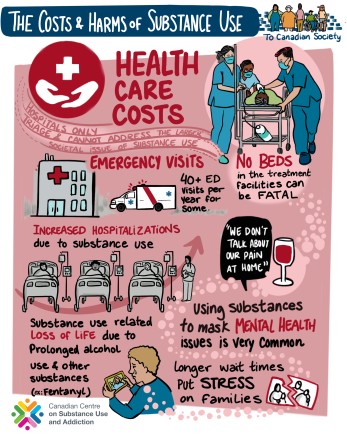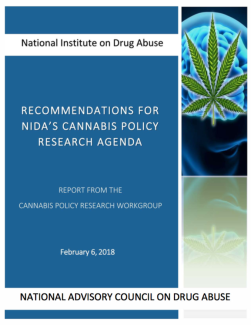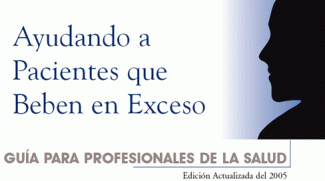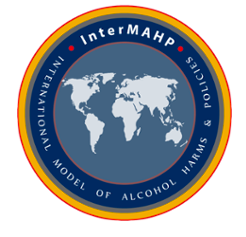
Cerca
e-Addictology: An Overview of New Technologies for Assessing and Intervening in Addictive Behaviors
Background: New technologies can profoundly change the way we understand psychiatric pathologies and addictive disorders. New concepts are emerging with the development of more accurate means of collecting live data, computerized...
Reported Theory Use by Digital Interventions for Hazardous and Harmful Alcohol Consumption, and Association with Effectiveness
ABSTRACT
Background: Applying theory to the design and evaluation of interventions is likely to increase effectiveness and improve the evidence base from which future interventions are developed, though few interventions report this.
Obje...
Rischio di violenza nei centri di riabilitazione dalla droga
Astratto
Sfondo
Nel 2009, il Messico ha riformato la sua legge sanitaria per depenalizzare parzialmente il possesso di droga considerato per uso personale e per aumentare i rinvii obbligatori a centri di riabilitazione dalla droga...
Extent and Patterns of Drug Use among Persons with Disabilities in Kenya
Abstract
Background: Although some data existed suggesting that there was high prevalence of drug use among the general population in Kenya with 39-48% of 15-65 year olds having used alcohol and at least one other substance, there was a...
Substance Abuse during Pregnancy: A 5-Year Follow-Up of Mothers and Children
Abstract
Introduction: The study investigates health and social conditions among pregnant substance abusers and the children that were born from these pregnancies, and analyses outcomes in relation to type of substance abuse.
Methods: Reg...
Does Salt Addiction Exist?
ABSTRACT
Background: Salt consumption activates the brain reward system, inducing cravings and the search for salted food. Its excessive intake is associated with high blood pressure and obesity. The high quantity of salt in processed food...
Trends in Mortality Rates Where Alcohol Was a Necessary Cause of Death in Brazil, 2000–2013
Abstract
[ABSTRACT]. Objective: To analyze trends in mortality due to diseases and conditions fully attributable to alcohol in Brazil. Methods: This was an ecological time-series study. Proportional, specific, and age-standardized...
Alcohol Outlet Availability and Excessive Alcohol Consumption in Breast Cancer Survivors
Abstract
Background:
Breast cancer survivors who consume alcohol excessively are at increased risk of recurrence and have worse prognosis. Because the environments in which people live shape many health behaviors, there has been increased...
Association of Cigarette, Cigar, and Pipe Use With Mortality Risk in the US Population
Key Points
Question: What is the association of cigar, pipe, and cigarette use with mortality risk in the US population?
Findings: In this nationally representative longitudinal cohort study of 357 420 participants comparing exclusive...
Recommendations for NIDA's Cannabis Policy Research Agenda
The National Institute on Drug Abuse (NIDA) has released a new report Recommendations for NIDA's Cannabis Policy Research Agenda.
The document has been prepared by the National Advisory Council on Drug Abuse Workgroup which was formed in...
Reduced Orbitofrontal Gray Matter Concentration as a Marker of Premorbid Childhood Trauma in Cocaine Use Disorder
Background: Childhood trauma affects neurodevelopment and promotes vulnerability to impaired constraint, depression, and addiction. Reduced gray matter concentration (GMC) in the mesocorticolimbic regions implicated in reward processing and...
Gli effetti della cocaina sulla trasmissione dopaminergica dipendono da un equilibrio tra l'espressione del recettore Sigma-1 e Sigma-2
I recettori Sigma σ1 e σ2 sono bersagli della cocaina. Nonostante condividano un nome simile, i due recettori sono strutturalmente non correlati e il loro ruolo fisiologico è sconosciuto. La cocaina aumenta il livello di dopamina, un...
Una guía de bolsillo: Indagación del abuso del alcohol y una intervención breve
Esta guía de bolsillo fue resumida de la guía de 34 páginas del NIAAA, Ayudando a Pacientes que Beben en Exceso: Una Guía Clínica. Los materiales incluyen:
- Folletos educativos para pacientes
- Notas de progreso ya formateadas
- Diapositiva...
Guida per gli operatori sanitari - Aiutare i pazienti che bevono eccessivamente
Linee guida per gli operatori sanitari per lavorare con persone che consumano alcol in modo eccessivo
Questa guida è stata scritta per i professionisti delle cure primarie e della salute mentale. È stato prodotto dal National Institute on...
Dual Disorders in Individuals under Treatment for both Alcohol and Cocaine
Abstract
Introduction: Descriptive data about co-occurrence of alcohol and cocaine consumption is scarce, despite its important prevalence. Dual disorders show high prevalence in clinical samples, and patients report worse evolution and...
Il modello internazionale dei danni e delle politiche dell'alcol
L'Istituto canadese per la ricerca sull'uso di sostanze presso l'Università di Victoria ha pubblicato il modello internazionale dei danni e delle politiche dell'alcol .
Composta da una serie di linee guida, metodi e strumenti, questa...
Stima della copertura del trattamento per le persone con disturbi da uso di sostanze: un'analisi dei dati delle indagini mondiali sulla salute mentale
Astratto
L'uso di sostanze è una delle principali cause di disabilità a livello globale. Ciò è stato riconosciuto nei recenti obiettivi di sviluppo sostenibile delle Nazioni Unite (SDG), in cui la copertura del trattamento per i disturbi...
¿Por qué es tan difícil dejar las drogas?
Video explicativo: ¿Por qué es tan difícil dejar las drogas?
Gli effetti reciproci ritardati dell'uso di sostanze e della recidiva in un contesto di rientro dei prigionieri
Astratto
Sfondo
Molto lavoro ha indagato l'associazione tra uso di sostanze, crimine e recidiva, ma pochi studiosi hanno esaminato longitudinalmente queste associazioni tra campioni di prigionieri recentemente rilasciati. Esaminiamo gli...
Fatti sulla marijuana per adolescenti
NIDA. (1 maggio 2015). Fatti sulla marijuana per adolescenti. Estratto da https://www.drugabuse.gov/es/publicaciones/hechos-sobre-la-marihuana-para-adolescentes in 2018, February 15
Sapevi che l'uso di marijuana tra gli adolescenti è...
Share the Knowledge: ISSUP members can post in the Knowledge Share – Sign in or become a member







